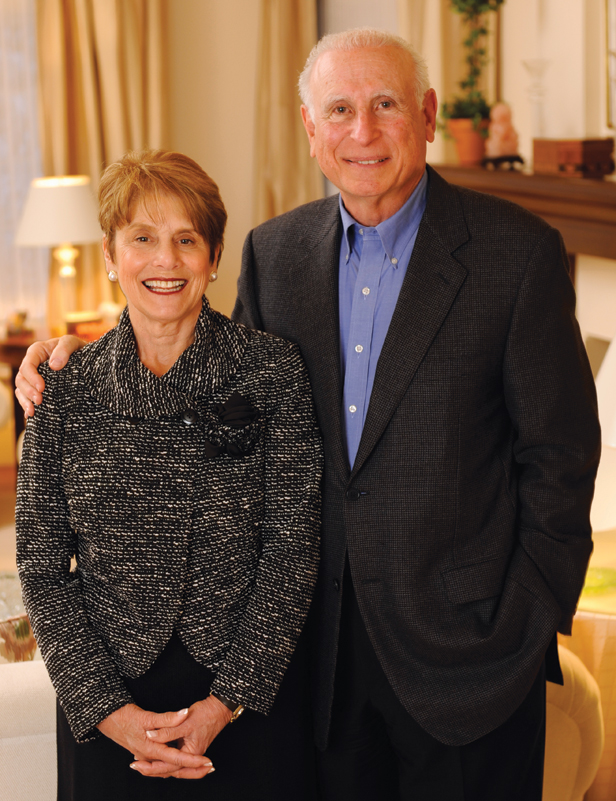
Art Gelb earned an ScD in systems engineering at MIT in 1961 and has been an entrepreneur for nearly 50 years. He cofounded The Analytic Sciences Corporation (TASC), an applied information technology firm, and later founded Four Sigma, which uses computer modeling to trade in the financial markets. He and his wife, Linda, have 10 grandchildren. “You look at these kids and you see tomorrow,” he says.
“At 15 I lost one parent and at 16 I lost the other, both to cancer,” says Art Gelb. “I had no brothers, sisters, or money. Eight years ago I lost a son to cancer when he was 42. Twelve years ago, I had cancer myself and was treated at Dana-Farber. I’m fine now, but getting ill made me push for MIT and Dana-Farber—two world-class gems—to join forces in the fight against cancer. I have the privilege of being on the governing bodies of both institutions, and it drove me crazy that they weren’t working together formally to develop cures for cancer, a scourge of humanity. MIT, unmatched in engineering and science, performs distinguished research on cancer, especially now with the Koch Institute for Integrative Cancer Research. And Dana-Farber is perhaps the finest cutting-edge clinical and cancer research institution in the world. I began talking with the leadership at both to formally do joint planning and projects—to put together teams that no organization can match—to gain insights and develop cures for this impenetrable disease. It took 10 years to evolve, but now our gift has launched the Bridge Project, a collaboration between biotechnologists at MIT and clinical researchers throughout the Dana-Farber/Harvard Cancer Center. The more research we can do in parallel, the sooner there will be a breakthrough that simply couldn’t have been envisioned without this project.”
Gifts to MIT support future generations.
For information, contact Rob Scott: 617-253-3394; rscott@mit.edu. Or visit giving.mit.edu.
Keep Reading
Most Popular
Large language models can do jaw-dropping things. But nobody knows exactly why.
And that's a problem. Figuring it out is one of the biggest scientific puzzles of our time and a crucial step towards controlling more powerful future models.
How scientists traced a mysterious covid case back to six toilets
When wastewater surveillance turns into a hunt for a single infected individual, the ethics get tricky.
The problem with plug-in hybrids? Their drivers.
Plug-in hybrids are often sold as a transition to EVs, but new data from Europe shows we’re still underestimating the emissions they produce.
Google DeepMind’s new generative model makes Super Mario–like games from scratch
Genie learns how to control games by watching hours and hours of video. It could help train next-gen robots too.
Stay connected
Get the latest updates from
MIT Technology Review
Discover special offers, top stories, upcoming events, and more.